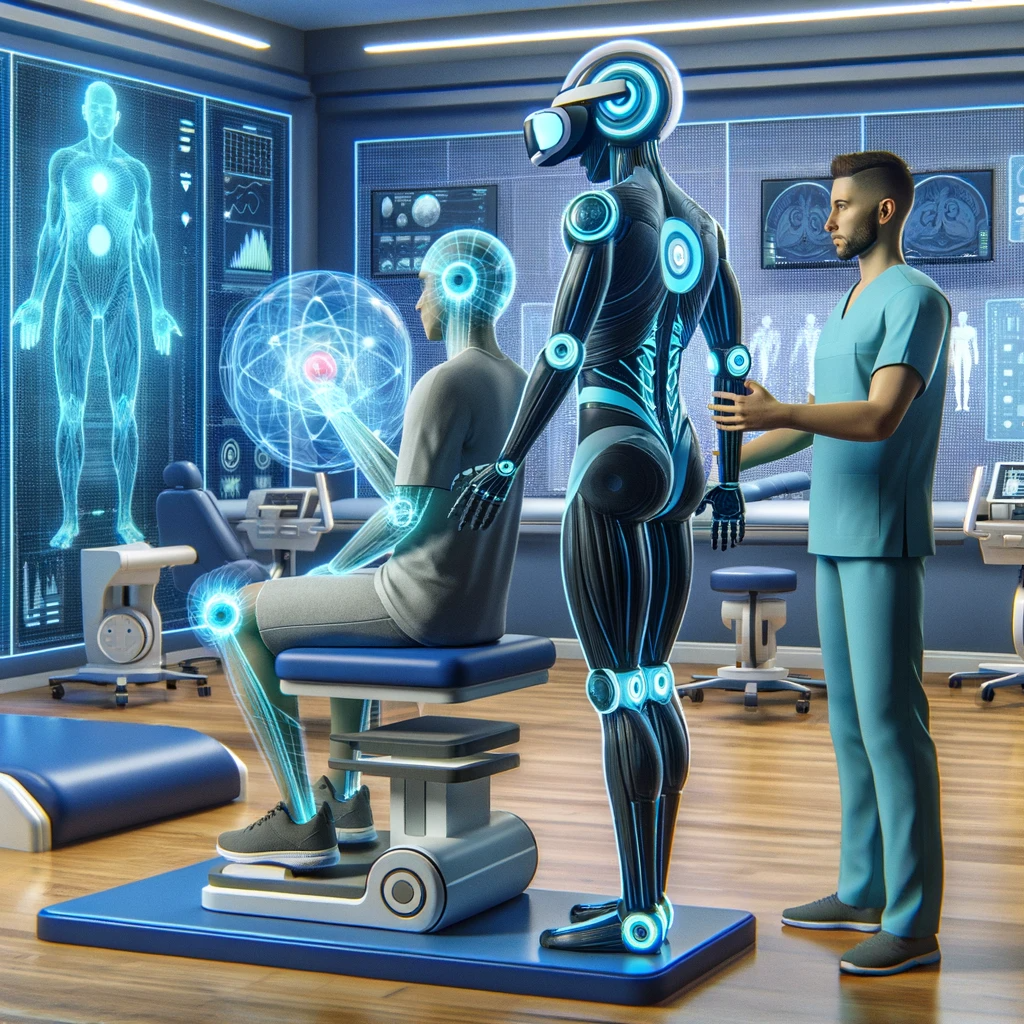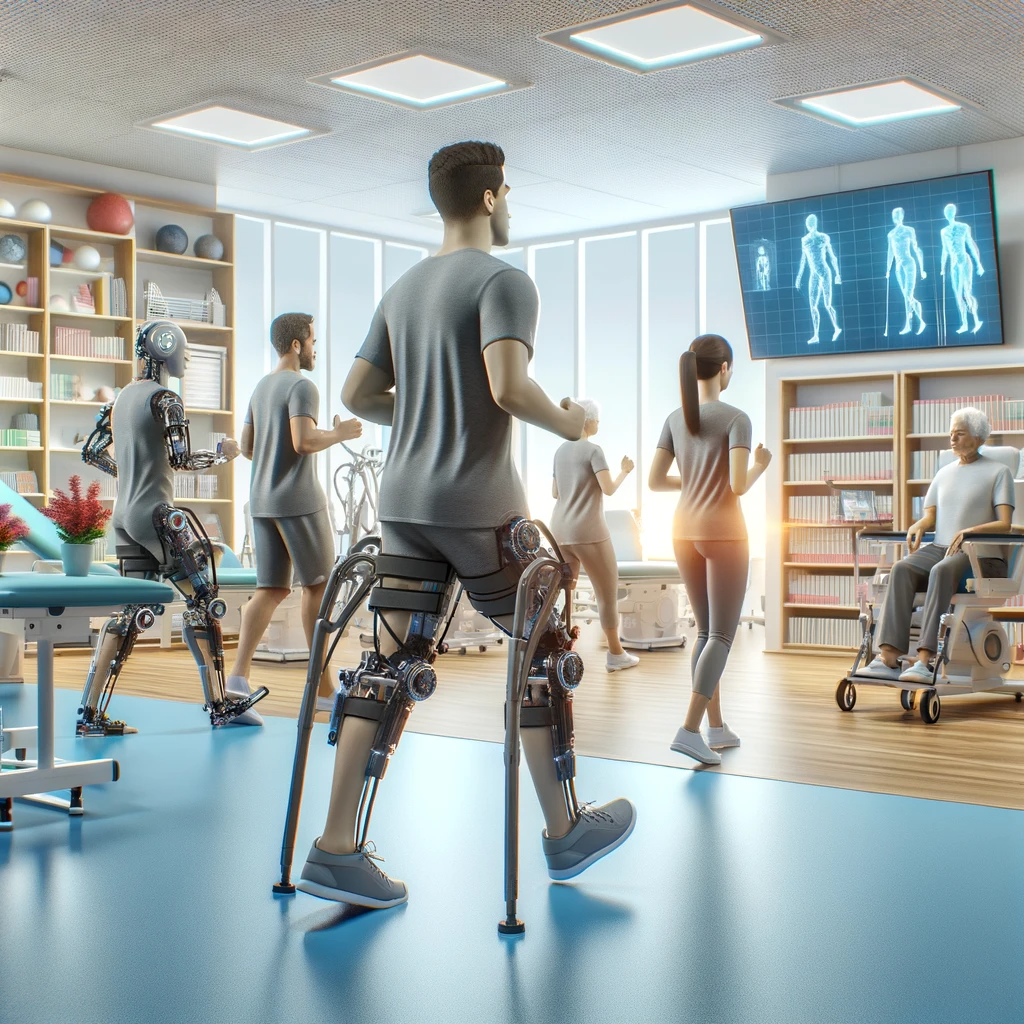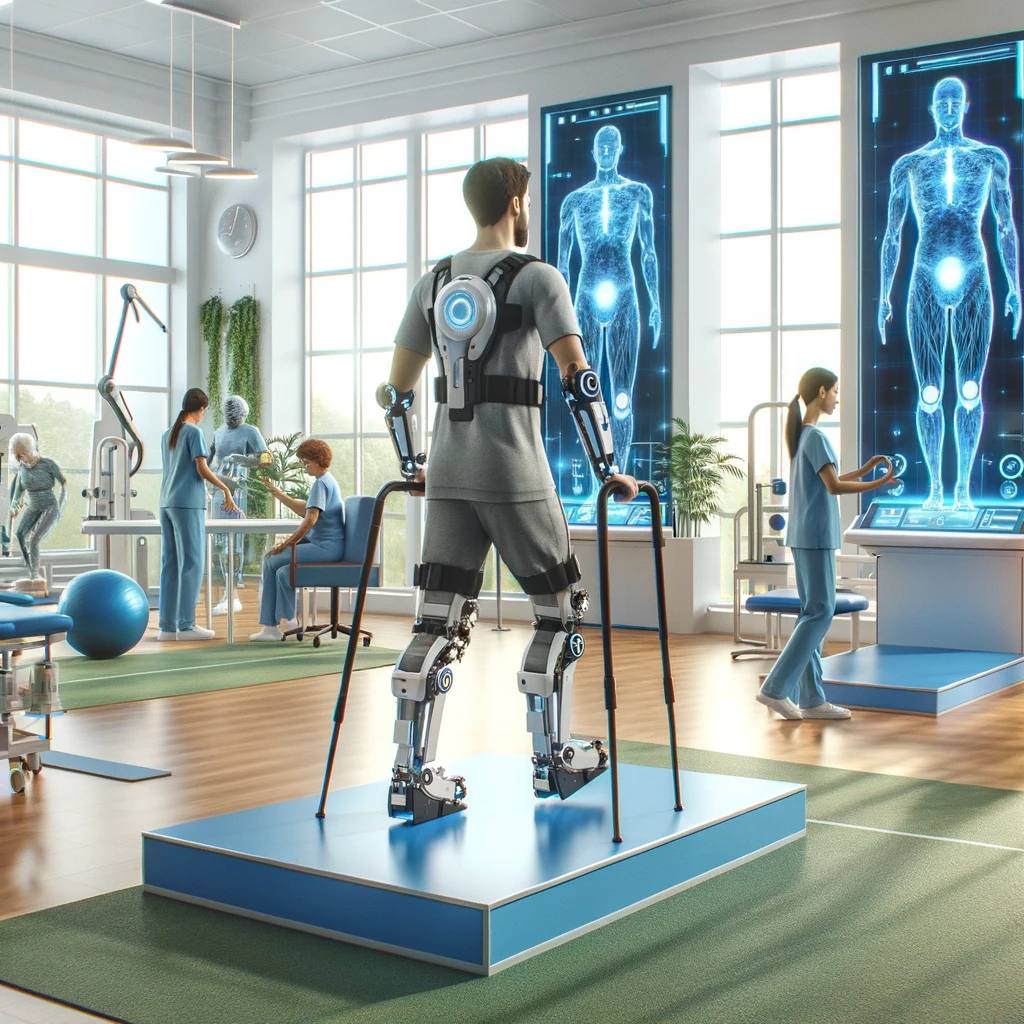Physical therapy and rehabilitation play a crucial role in helping individuals recover from injuries, surgeries, and medical conditions. These treatments are often tailored to the specific needs of each patient, but what if there was a way to make them even more personalized and effective? Enter Artificial Intelligence (AI), a technology that is revolutionizing the field of physical therapy and rehabilitation.
The Power of Personalization
One of the key challenges in physical therapy and rehabilitation is designing treatment plans that address each patient’s unique circumstances. What works well for one person may not be as effective for another. AI has the potential to change this by introducing a new level of personalization.
Customized Treatment Plans:
AI’s ability to process vast amounts of medical data and extract valuable insights is at the core of its contribution to personalized rehabilitation. Traditional rehabilitation plans are often based on general guidelines and the therapist’s experience. However, AI algorithms can analyze a patient’s medical history, physical condition, and progress to create highly customized treatment plans.
These plans take into account factors like age, gender, fitness level, and the specific nature of the injury or condition. For instance, a personalized plan for a middle-aged individual recovering from knee surgery will differ significantly from that of a young athlete rehabilitating a sports injury. This personalization ensures that patients receive treatments that are precisely tailored to their needs, maximizing the chances of a successful recovery.

Real-time Monitoring:
Another area where AI shines is in real-time monitoring. Wearable devices equipped with AI technology can track a patient’s movements and vital signs during physical therapy exercises. This data is then fed into AI systems that provide instant feedback to both the patient and the therapist.
For example, if a patient is performing an exercise incorrectly, the AI system can detect this and provide guidance on proper form. It can also measure progress over time, helping therapists make data-driven decisions about the pace and intensity of treatment. This real-time monitoring not only enhances the quality of therapy but also empowers patients to actively participate in their recovery.
Predictive Analytics:
AI’s ability to analyze vast amounts of data comes into play when predicting outcomes. By examining the treatment history and progress of thousands of patients with similar conditions, AI algorithms can make predictions about a patient’s likely recovery trajectory.
This predictive capability assists therapists in setting realistic expectations for their patients and adjusting treatment plans as needed. For example, if the data suggests that a patient is progressing slower than expected, the therapist can modify the rehabilitation plan to address potential obstacles.
Remote Rehabilitation:
In today’s world, telehealth and remote rehabilitation have gained prominence, thanks in part to AI. AI-powered virtual rehabilitation platforms enable patients to receive therapy at home while being monitored remotely by therapists. These platforms use AI to guide patients through exercises, track their progress, and provide real-time feedback.
Remote rehabilitation not only increases accessibility to care but also allows patients to engage in therapy without the need for frequent in-person visits. AI ensures that patients perform exercises correctly and offers immediate corrective feedback, reducing the risk of injury or ineffective treatment.
Challenges and Considerations
While AI holds great promise in enhancing physical therapy and rehabilitation, there are challenges and considerations to keep in mind.
Privacy and Data Security: Collecting and storing patient data, especially in remote rehabilitation scenarios, must adhere to strict privacy and security standards to protect sensitive health information. Compliance with regulations like HIPAA is essential to ensure patient confidentiality.
Patient Education: Patients need to understand how AI is used in their therapy and be comfortable with the technology. Ensuring proper education and training is essential to build trust and maximize the benefits of AI-driven rehabilitation.
Therapist Integration: AI should complement, not replace, the expertise of physical therapists. Integrating AI into the therapist-patient relationship is crucial for successful implementation. Therapists need training to effectively use AI tools and interpret AI-generated data to make informed decisions.

The Future of Personalized Rehabilitation
As AI continues to advance, the future of personalized physical therapy and rehabilitation looks promising. Patients can expect treatments that are precisely tailored to their needs, resulting in faster and more effective recoveries. Therapists can rely on AI to provide valuable insights and enhance their decision-making processes.
The integration of AI into physical therapy and rehabilitation represents a significant step forward in healthcare. It not only improves outcomes but also offers patients greater convenience and access to care. As technology continues to evolve, the partnership between AI and healthcare will pave the way for a healthier, more personalized future for all. With AI as a valuable ally, the journey toward recovery becomes more efficient, effective, and patient-centered than ever before.
